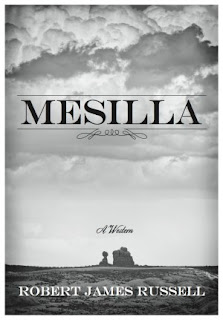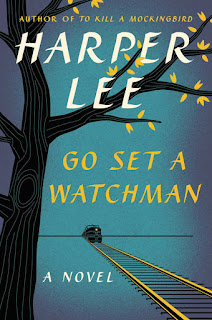This was the Year of Resurrection.
In late 2014, after more than four years of continuous blogging here at The Quivering Pen, I was rapidly approaching burn-out. My own novels were not getting written, short stories were languishing, and my cats were occasionally going unfed—all in service to this blog, which remains a one-man sweatshop operation. So, after long thought and many nights of troubled sleep, I decided to kill The Quivering Pen. On January 13, 2015, I nailed the shutters over the windows and chained a padlock across the front door, then turned my back and walked away down the road.
Only to come scurrying back in April. Jesus may have been sealed in His tomb for three days, but it took me three months to realize I couldn’t live without The Quivering Pen. (Well, I can—and I will eventually, someday—live without the blog, but I think you know what I mean: it’s an enjoyable part of my daily routine.)
After the hiatus, I came back to the blog with gusto...but also with a new attitude: if I didn’t post something each day, if I decided to take a break and just RELAX, that was okay. No one’s world was going to end if The Quivering Pen didn’t pop up in their news feed. Though you’d never be able to tell by the number of posts I’ve written since April, that’s been my mantra for the blog in 2015. I’ve gone all
que sera, sera on the Pen.
And you, faithful readers, have continued to read the blog. I’ve written it, and you’ve come. You will never know how much I appreciate your clicks and shares and encouraging comments, whether at the blog itself or through email and social media messages. While overall page views were down from those in 2014, I chalk that up to the blog’s three-month slumber. Since the Resurrection, however, you have clicked and clicked and clicked, and for that, I thank you.
Here’s how the 2015 stats shook out. I compiled this roster of Top 10 blog posts from the shaky science of Google Analytics, so take that for what it’s worth. I left off things like the weekly
Friday Freebie book giveaways and the
Soup and Salad news compilations. I also limited myself to posts which first appeared in 2015—otherwise, older content would have dominated the list: posts like the one about
Tobias Wolff’s short story “Bullet in the Brain” (which is consistently one of the most-visited posts—primarily from students doing term papers on Wolff, methinks),
an appreciation of Barry Unsworth’s novel Morality Play, and a post titled
“Having Sex With Madame Bovary” (not hard to see why that earns so many search-engine clicks). So, without further ado, here are the champions of 2015 with snippets from the original blog posts:
#1: The Best First Lines of 2015
A roundup of the best opening sentences in books published in 2015, including this one from
All This Life by Joshua Mohr: It’s another brittle day, all of them inching over the Golden Gate Bridge into San Francisco, their typical trek to cluttered desks, schlepping with their hangovers, their NPR, carpools and podcasts, prescription pills and nicotine patches, their high-def depressions, Lasik so they can see all their designer disaffections, lipstick smeared on bleached teeth, bags under their eyes or Botox time machines, bald spots or slick dye jobs, bellies wedged in pants or carved Pilates bodies, their urges to call in sick, their woulda coulda shouldas.
#2: In a World Without Mockingbirds: What if Go Set a Watchman was Harper Lee’s First and Only Book?
In 1957 the J. B. Lippincott Company purchased
Go Set a Watchman by Harper Lee. Editor Tay Hohoff, although impressed with the story, thought it was by no means ready for publication. During the next couple of years, she led Lee from one draft to the next until the book finally became what we know as
To Kill a Mockingbird. But what if the publisher had accepted
Go Set a Watchman and printed it as submitted? What would the reaction have been at the time? Would
Mockingbird ever have happened? This is how I approached my reading of
Go Set a Watchman. It wasn’t easy to read this new book in a world without
Mockingbird—which is such an unstoppable force of culture—but I blocked it out and concentrated on
Go Set a Watchman as a singular work of art. I penned a hypothetical review as it would have been written in 1960.
#3: The Last Word.
Apparently, y’all like to rubberneck murder scenes. When I tried to kill the blog, enough of you were there to make this the third-most popular post of 2015. Here’s how I concluded that now-slightly-embarrassing message: Now, I’m off to finish this draft of the novel I’m calling
Crossing Baghdad. After that, it’s on to a revision of
Dubble, the satire about a Hollywood stuntman. Beyond that, other novels wait their chance to be written....like the one about the 12-year-old girl who falls in love with the actor playing Judas in a touring production of
Jesus Christ Superstar; or the one about the obese butcher who, in the 1930s, swims the Yellowstone River to prove his love for a woman who has scorned his advances; or the one about the married couple, paralyzed in a car crash and now lying side by side in hospital beds, who realize they’re still in love even though they can never touch each other again (working title:
Married, With Broken Necks); or the one about the small town in Montana trying to piece itself back together after a bus accident which kills nearly every member of its high school wrestling team; or....well, you get the idea. My head is an aquarium full of fish, each one with a story to tell.
#4: My First Time: Lincoln Michel
There are two literary success stories we like talking about: the prodigy who shoots to stardom after getting her first big break and the underappreciated writer who toils away in obscurity until suddenly finding success (often after death). It’s easy to see why. The former allows emerging writers to imagine writing success will be easy and quick, and the latter allows writers who haven’t found success yet to believe it’s still in the cards for them. And both of those things do indeed happen. For me and most writers I know, though, the journey is bit more of a long but steady slog.
#5: The Best Book Cover Designs of 2015
As it turns out, you
can judge a book by its cover...or at least I do. Unfair or not, the art and design of book covers can sometimes be the one factor that either persuades or dissuades me from initially picking up (or clicking on) a book with which I’m not familiar. True, I’ve read some really great books which were dressed in lousy clothes; but the opposite is also true: some truly beautiful jacket designs turned out to be window dressing for some
meh writing inside. These were my favorites which hit bookstores for the first time in 2015, including the design for
Find Me by Laura van den Berg: The words on the cover are just fuzzy enough to make me think I’m looking at something trapped under lake ice. Everything harmonizes here—color, typeface, size and placement—to make this one of the outstanding covers of 2015.
#6: Writing is a Marathon Sport: Virginia Pye and Her Patience
At the age of twenty-seven, I sat in the impressive 57th St. office of one of New York’s top literary agents and listened as she described how Meryl Streep should play the mother and Judd Hirsch the father in the movie version of my first novel. As we stood to shake hands, I couldn’t quite grasp what was happening so I asked outright if she was going to represent me and oversee my book’s publication. She smiled, because how my future was intended to unfold looked apparent to her. As I left the shiny chrome and glass building and walked up Fifth Avenue towards Central Park, I let it sink in that my life’s dream was about to come true, right on schedule. I would soon be a young star on the literary scene. I felt elated and satisfied and it all seemed too good to be true.
And it was. Because neither that agent nor anybody else could have told me that I would be lucky enough to write books for the rest of my life, but I would have to wait until I was fifty-three years old—almost precisely twice the age I had been when the impressive agent took on that first manuscript—until my debut novel was finally published.
#7: My First Time: Erika Swyler
I don’t have a desk drawer novel or a shelf full of false starts. My first book lives in e-book purgatory and wears an imaginary author’s name. I am a debut novelist who isn’t really a debut novelist.
It was a write-for-hire novel for a startup publisher of—wait for it—feminist erotica. In a standard startup nightmare, the publisher folded after I’d delivered my manuscript. My paycheck never materialized. The book is my biggest achievement and greatest failure. It’s a terrible piece of writing, but the circumstances under which I wrote it changed my perspective on who I am and what writing work means.
#8: My Favorite Books of 2015 (So Far)
The best books stick—sure as spaghetti thrown at a wall or oatmeal to the ribs—and the first eight months have been filled with books which have attached themselves to me and show no signs of ever letting go. I’ve winnowed the list of books I’ve enjoyed down to nine and they run the gamut from a Bigfoot hunter to a fictionalized F. Scott Fitzgerald.
#9: The Best Short Stories of 2015
Guest blogger Jodi Paloni listed her favorite short fiction published in 2015, including one by Bill Roorbach: Lucky for us, Bill has a new story out through a delightful invention from
Ploughshares—a top-notch literary journal based out of Emerson College—called the Ploughshares Solo series. For $1.99 you can hold a paperback single, like Roorbach’s “Confession,” in your hand or download it to your e-reader. You never have to throw off the blanket or leave the house! “Confession,” like all of the Solos, is a “longer” short story. It’s about a first date between a pastor and a skeptic and a conversation held in a bar. “Confession” maintains what we’ve come to expect from Bill’s work—great heart, brainy wit, and down-to-earth sexiness, all wrapped up in prose that’s music to the ears. If a story could be a hot toddy, well, this is the one to drink.
#10: The Return of The Quivering Pen
Then Jesus shouted, “Lazarus, come out!” And the dead man came out, his hands and feet bound in graveclothes, his face wrapped in a headcloth. Jesus told them, “Unwrap him and let him go!”
John 11:43-44
As it turns out, this blog was not dead, merely dormant. Or, in the words of
The Princess Bride, it was only
mostly dead.













































